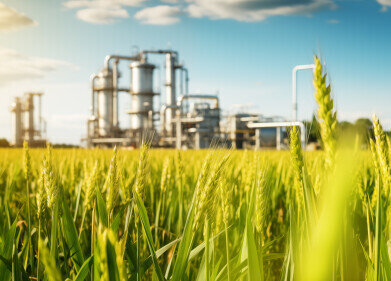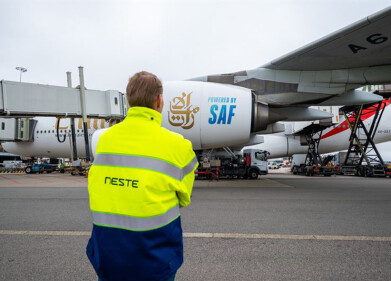-
 the leak occurred in the middle of wheat frield and covered over seven acres
the leak occurred in the middle of wheat frield and covered over seven acres
Fuel for Thought
North Dakota oil spill not reported to public for days
Oct 14 2013
An oil spill in the middle of a wheat field on a North Dakota farm could take months to clean up, according to officials. The oil leak was a result of a pipeline rupture and was discovered by the farmer while he was harvesting the field. However, state officials failed to report the spill to the public, which spread across a 7.3 acre area, until 12 days after it was discovered.
Some 20,600 barrels of crude oil spilled from a ruptured pipeline onto the field, resulting in clean-up operations that could last months. According to Eric Haugstad, director of contingency planning and response for oil company Tesoro - which owns the pipeline - around 1,800 barrels of the spilled oil had been recovered by Sunday (October 13th). However, clean-up still has a long way to go and crews are working 24 hours a day to remove the oil from the area.
Steve Jensen, the farmer who discovered the spill, said that he had been smelling oil for days before he found the cause. When the leak was discovered, it was bubbling up out of the ground, according to Mr Jensen. The spill was found to be the one of largest recorded in the state. However, it was not reported by state officials until 12 days after it was originally discovered. The delayed report of the incident has led to questions over how many oil leak incidents are reported by the state, which is currently experiencing an oil boom.
Kris Roberts, state environmental geologist, reported on Thursday (October 10th) that the pipeline leak had been stopped and the oil that had already spilled had been successfully contained. Luckily the oil spill site is not in close proximity to any homes or buildings and so no one was injured or needed to be evacuated.
Currently it looks as though no water sources have been affected by the leak, but monitoring is continuing in order to ensure that seepage remains at a minimum.
Digital Edition
PIN 25.2 Apr/May
May 2024
Safety - Carbon monoxide toxic and flammable gas detection Analytical Instrumentation - Density: A fundamental parameter at critical stages within the petroleum sector - Advancements and...
View all digital editions
Events
May 14 2024 Tashkent, Uzbekistan
May 14 2024 Oklahoma City, OK, USA
May 15 2024 Lund, Sweden
May 15 2024 Copenhagen, Denmark
May 15 2024 Frankurt-am-Main, Germany

















